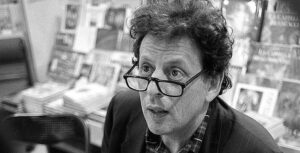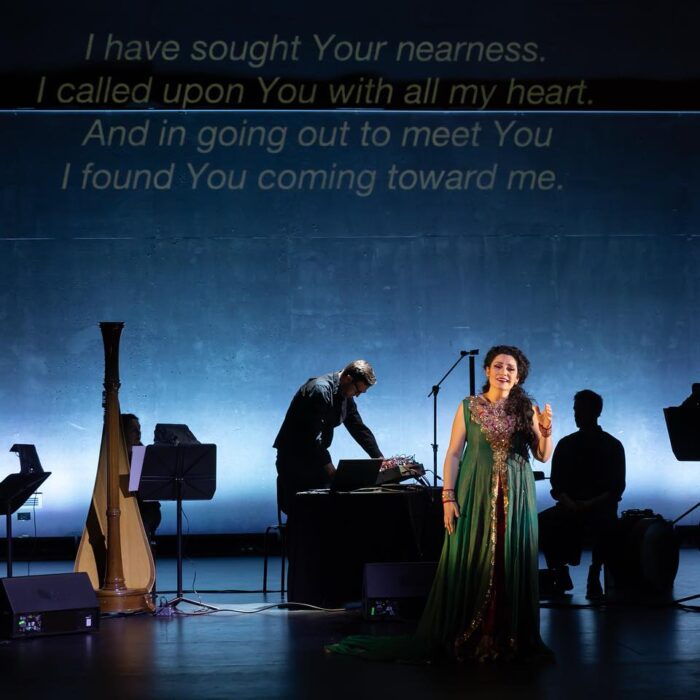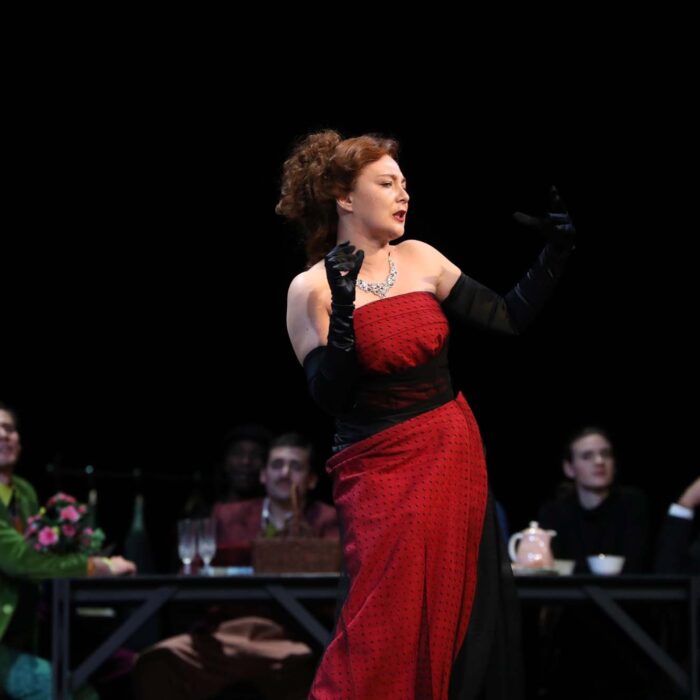
On This Day: 4 Of Our Favorite Philip Glass Compositions In Opera And Film
By Francisco SalazarPhilip Glass is one of the most acclaimed composers of our time. The composer’s minimalist approach to composition balances the melodic with the arpeggiated rhythm. Most will say that his music all sounds the same but if you listen closely, you’ll discover the intricate melodies within the rhythmic structure. On Jan. 31, 1937 Phillip Glass turns 80 and OperaWire takes a look at some our favorite Glass pieces including some of his groundbreaking operas.
“Satyagraha”
The 1979 opera is loosely based on the life of Mahatma Gandhi and it forms part of Glass’s “Portrait Trilogy” of operas about men who changed the world. The opera features an immense ensemble of soloists, but it is Gandhi’s role, a tenor part, that the work is centered on. The opera has been performed all over the world including Rotterdam, the Netherlands, Stuttgart and most recently in New York, where the Metropolitan Opera included it in its Live in HD series. The opera is sung in Sanskrit and on some occasions it is performed without subtitles to create the meditative ambiance Gandhi advocated for. There is a recording from 1985 for Sony Classical where audiences can appreciate the melodic genius within the minimalist style.
“The Hours”
Outside of his writing for opera, Glass has composed some incredible scores for movies. A personal favorite is the music for the Oscar-nominated “The Hours.” In the music Glass covers a range of emotions from the melancholic tone of the movie to the grief and longing captured by the characters. The orchestration is made up of strings and a solo cello which continuously repeats a melody that increases in its intensity as the score develops. The use of a piano is also scattered throughout. But what is most impressive in this score is how Glass keeps it quiet until the very end when he can finally get to the climatic moments. The orchestra continuously repeats the same notes but builds to the intense emotions presented in the film.
“Akhnaten”
One of the most popular opera in his output, which premiered 1984, “Akhnaten” is said to be more accessible than his others. The music follows and underlines the dramatic context outlined by the story and the harmonic and melodic language is more theatrical and romantic as opposed to the more minimalist approach in works such as “Satyagraha.” Like “Satyagraha” the piece was recorded on Sony and is rumored to premiere at the Metropolitan Opera after a successful run in San Francisco.
“The Illusionist”
In 2006 the composer did two very popular films, of which one was nominated for the Oscar and other ignored. “The Illusionist,” the ignored film score, captures the mystery and the magical textures in Neil Burger’s drama. There is a theatrical quality to the opening bars of the score as if a play were about to start, but then Glass shows his slight of hand and finds his way to the arpeggios his music is always associated with. The score is bass heavy and in some moments there is even a timpani, all creating the theatrical effect. Glass experiments with colors and in some moments even dissonance. For the more romantic sections of the score it becomes violin-heavy and the harp is present throughout.
Tell us what your favorite Philip Glass composition is?
Categories
Special Features

